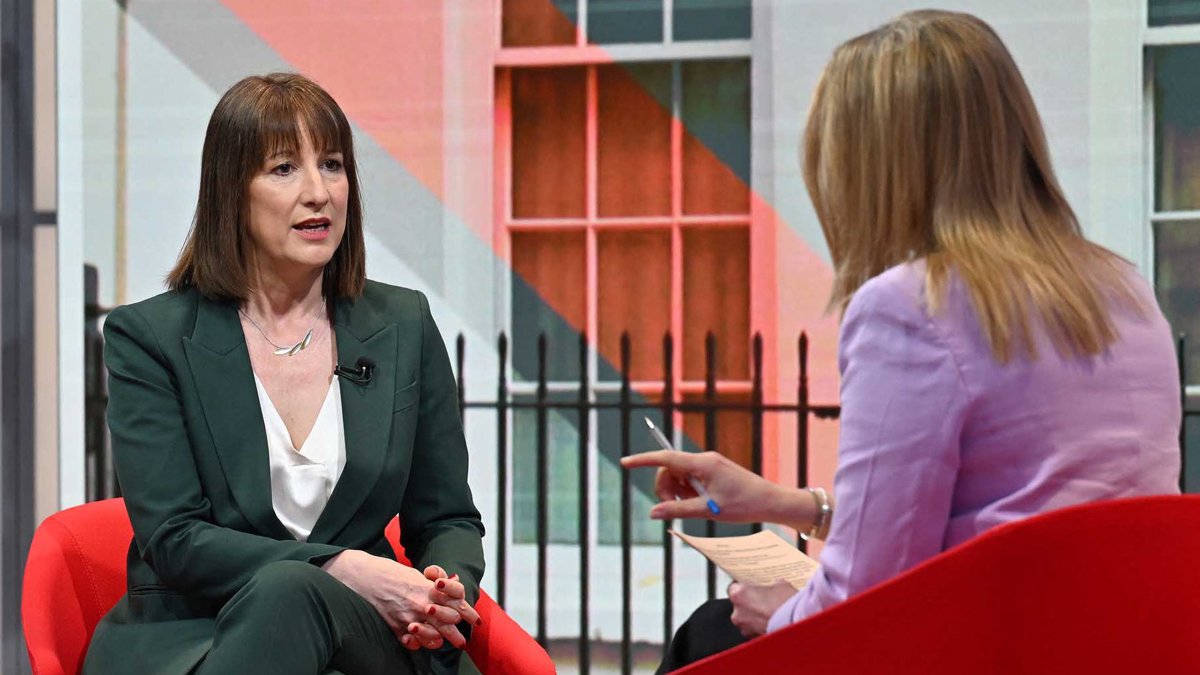British finance chief Rachel Reeves said Sunday she plans to cut the costs of running government by 15% within four years while also announcing 10,000 jobs could be slashed as the country grapples with strained public finances.
Her comments came ahead of her crucial Spring Statement on Wednesday, when she is expected to detail billions of pounds of spending cuts across various government departments.
“We are, by the end of this Parliament, committing that we will cut the costs of running government by 15%,” she told the BBC.
The broadcaster reported that the target would translate to annual savings of 2.2 billion pounds ($2.8 billion) across Britain’s civil service, which employs more than 500,000 people.
Reeves said it would be up to individual departments to decide how many civil servants would lose their jobs but added that personnel could be cut by 10,000.
“I would rather have people working on the front line in our schools and our hospitals, in our police, rather than in back-office jobs,” she told Sky News.
Reeves also insisted that she will stick to her own fiscal rules when she delivers her financial update on Wednesday.
They are not to borrow to fund day-to-day spending and to see debt fall as a share of the gross domestic (GDP) product by 2029-2030.
Since she has also committed to not increasing taxes, sticking to the rules raises the prospect of spending cuts to some departments.
In her first full budget last October, Reeves sought to win the trust of investors by pledging to bring day-to-day spending into balance with tax revenue by the end of the decade.
But she is believed to have been knocked off course by slow economic growth and higher borrowing costs. A potential global trade war triggered by U.S. President Donald Trump’s import tariffs has led to downgrades to the international outlook.
“The world has changed. We can all see that before our eyes and governments are not inactive in that,” Reeves told Sky News on Sunday.
“We’ll respond to the change and continue to meet our fiscal rules.”
The Labour government has failed to get Britain’s economy firing since it swept to power last July, a task complicated by Trump’s return to the White House.
Official data released on Friday showed that public sector net borrowing – the difference between spending and tax receipts – grew last month, leaving Reeves with little wiggle room to meet her rules.
The restrictions are designed to ensure that the government’s spending plans maintain credibility in financial markets.
On Tuesday, the government announced contested cuts to disability welfare payments, hoping to save more than 5 billion pounds annually by the end of the decade.
Reeves insisted Sunday that there would still be “real-terms” increases in total public spending in every year of this parliament, which is due to end in 2029.
To spend on ‘priorities’
“As a government, we have to decide where that money is spent, and we want to spend it on our priorities,” she said.
The government has increased spending on defense in response to Trump’s calls on Europe to do more to protect its own security. Further increases are planned for the coming years.
With the economic growth outlook likely to be slashed on Wednesday, Britain hopes to avoid the brunt of import tariffs that the Trump administration is considering.
“President Trump is rightly concerned about countries with large and persistent trade surpluses with the U.S. The U.K. is not one of those countries,” Reeves told the BBC on Sunday.
Asked whether Britain could offer to end its Digital Services Tax levied on large tech companies such as Google and Facebook to win favor in Washington Digital Services, Reeves said talks were ongoing.
“We’re in discussions at the moment about a whole range of things around tariffs with the United States, but we will continue to operate on the principle that you should pay taxes in the country where you operate,” she said.




















































Be First to Comment